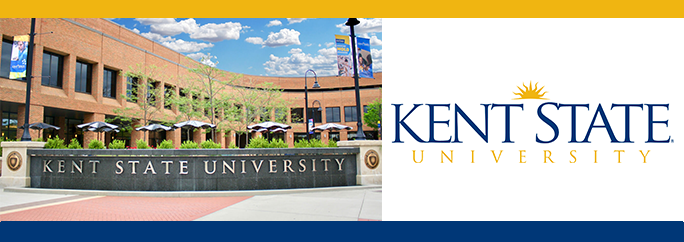The Academic Minute for 2021.04.19-2021.04.23

The Academic Minute from 04.19 – 04.23
Monday, April 19th
Joshua Albrecht – Kent State University
Music and the Language of Emotion
Dr. Joshua Albrecht joined the Kent State University School of music’s theory faculty in 2019. Previously, he taught at the University of Mary Hardin-Baylor for seven years as an associate professor of music theory and technology. Dr. Albrecht taught the entire undergraduate music theory sequence as well as music technology and music psychology. He holds a Ph.D. in music theory from Ohio State University, specializing in music cognition and systematic musicology with a specialization in teaching, studying with David Huron. Before attending Ohio State, he earned his master’s degree in music theory with an emphasis in composition from the University of Texas (2007), and his Bachelor of Music in music history/theory from the University of Wisconsin-Whitewater (2005).
Tuesday, April 20th
Colleen Novak – Kent State University
How the Brain Turns Up Heat on Our Muscles
Colleen Novak received her bachelor’s degree at the University of Iowa before moving on to Michigan State University for graduate studies in neuroscience. After postdoctoral work, first at Georgia State University and later at the Mayo Clinic, Dr Novak began a faculty position at Kent State University in 2009, where she now serves as a Professor of Biological Sciences.
Wednesday, April 21st
Andrea Ridgel – Kent State University
Adaptive Rehabilitation of Neurological Disease
Dr. Ridgel is an Associate Professor in Exercise Science/Physiology. She received her undergraduate degree in Biology from The College of William and Mary in Virginia, a Master’s degree in Biology at Villanova University in Pennsylvania and her Doctoral degree in Biomedical Sciences from Marshall University in West Virginia. Dr. Ridgel completed her Post-Doctoral training at Case Western Reserve University and Cleveland Clinic. Her early work used animal models to examine the neurobiology of movement and the effects of aging on movement. Most recently, she has been interested in how aging and neurological disorders limits movement and cognition in humans. Dr. Ridgel’s current research project examines how exercise can be used for neurorehabilitation in elderly individuals and those with Parkinson’s disease. Her research is currently funded through a National Institutes of Health R21 grant. She has ongoing research collaborations with University Hospital, Case Western Reserve University, the Ohio State University and University of Southern California.
Thursday, April 22nd
Bjorn Lussem – Kent State University
Organic Biosensors at the Interface of Materials Science, Electronics, and Neuroscience
Björn Lüssem studied electrical engineering at the RWTH Aachen (Germany) and the University of Bath and obtained his degree as Diplom-Ingenieur in 2003.He prepared his PhD thesis at the Research Center in Jülich, Germany in the field of molecular electronics. His thesis concentrates on Scanning-Tunnelling Microscopy of pure and mixed self-assembled monolayers and has been awarded theVDE-Promotionspreis and the Günther-Leibfried-Preis.After staying at the Materials Science Laboratory of Sony in Stuttgart from 2006-2008, he joined Prof. Leo’s group at the TU Dresden, where he headed the OLED and the New Devices group. In 2014 he started as Assistant Professor at the Physics Department of Kent State University.
Friday, April 23rd
Sara Byramzadeh – Kent State University
Toward a Model of Safety and Care for Trauma Room Design
Dr. Sara Bayramzadeh joined Kent State University, as the Coordinator of and Elliot Professor in the Healthcare Design program, in 2018. She is recognized for her research on psychiatric units and operating rooms designs. Sara is interested in interdisciplinary research efforts to enhance healthcare outcomes through effective environmental design. Such outcomes include efficiency and the safety and satisfaction of both patients and staff. As an advocate of interdisciplinary collaborations, she believes true innovation emerges from learning in the context of such collaborative efforts.


